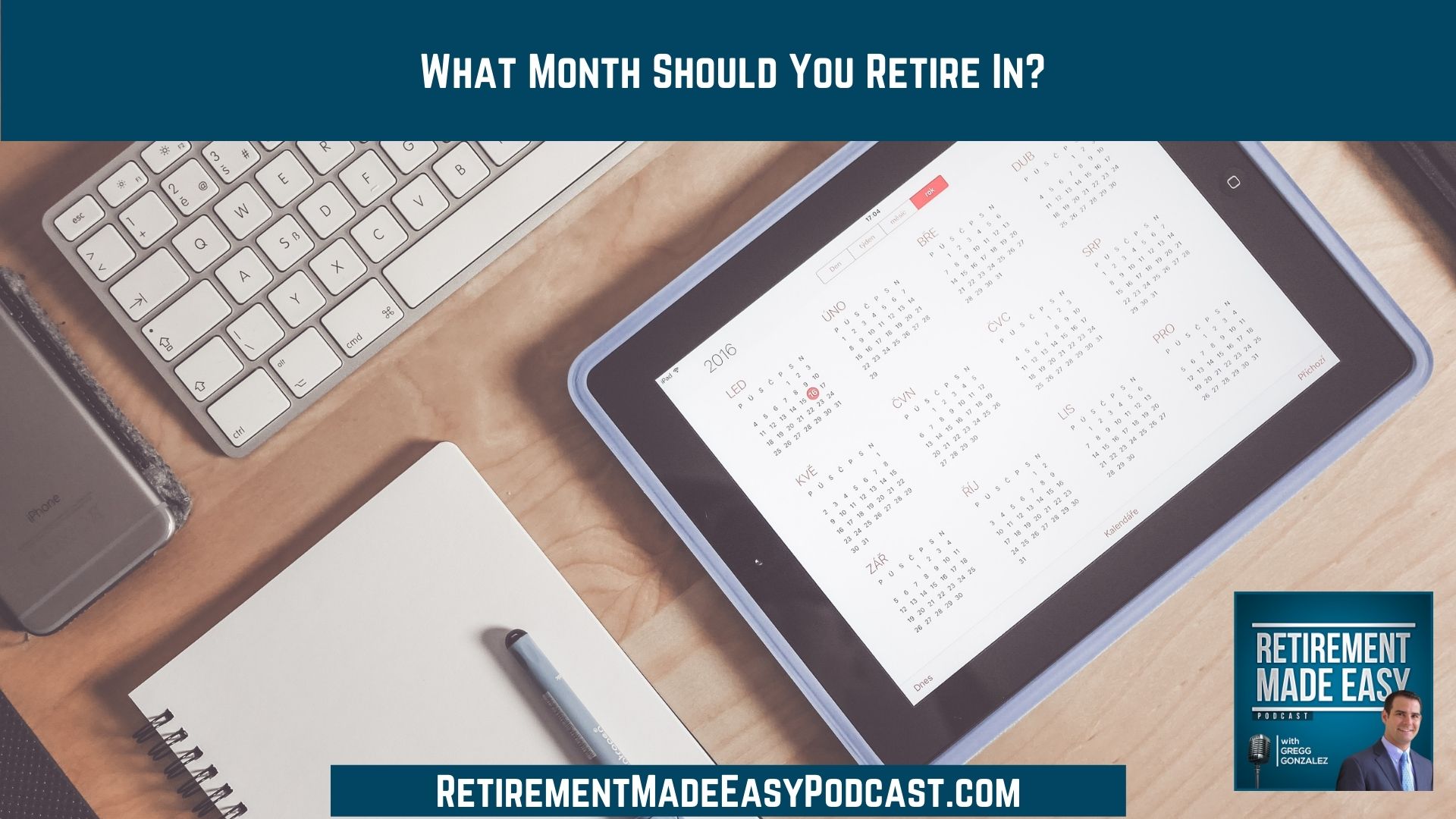
Did you know that some months are better than others when it comes to retiring? What month YOU should retire depends on numerous factors, like what you do for a living, health insurance, your retirement portfolio, and even the weather. We’ll cover it all in this episode of the Retirement Made Easy podcast.
You will want to hear this episode if you are interested in…
- [0:26] The top 5 episodes of the podcast you need to listen to
- [3:26] Check out FREE resources at RetirementMadeEasyPodcast.com!
- [5:05] The best month to retire by profession
- [9:03] Factor in when you can jump on Medicare/health insurance
- [9:40] What to do when life throws a wrench in your plan
- [11:56] The two months I would choose to retire
- [14:08] Why the weather should be taken into consideration
- [16:41] Consider all of the factors that will steer your decision
What is your profession?
What do you do for a living? If you own a business, you’ll want to sell your business and retire in January. Why? It’s a clean slate for your taxes. You won’t be taxed on earned income PLUS whatever is due on the sale of the business.
Many teachers retire in July when they get full credit for the previous fiscal year. Teacher’s pensions are based on your best three working years. Typically, that’s your last three working years because you’ve gotten raises along the way. Some teachers will work in Summer school, which is included in the pension calculation.
Does your profession impact when you can retire?
Do you have a bonus to factor in?
I encourage those who work in the corporate world and get a yearly bonus to wait to retire until that happens, which is usually in March. For example, bonuses from 2021 are typically paid out in March 2022. I don’t see it as an ethical dilemma. That bonus was earned the previous year. It’s the same with company stock options. Once they’re issued, they’re yours.
Loko at your 401k. When are you fully vested? If you’re only 80% vested, can you wait an additional year? Then the match dollars that your employer contributed are yours once you retire. Don’t leave money on the table. Don’t walk away from a bonus you earned by retiring early. Keep listening as I talk through how health insurance options impact the month you retire in.
The month I would choose to retire
I would choose to retire in March but preferably in April. Why? Many people in the corporate world have sick/vacation days paid out in some capacity when they retire. I’ve seen anywhere from $5,000 to $30,000 payouts, depending on how long someone worked for their employer.
You will most likely be taxed on the vacation and sick days built up. If so, you don’t want to retire at the end of the year and have to pay taxes on a full year of earned income PLUS that payout. It may even move you into a higher tax bracket. It makes more sense from a tax standpoint to wait to retire until April. Then you have 3 months of earned income, can still contribute to an HSA, and the tax rate will be lower. What else makes April great? Better weather!
When life doesn’t give you a choice
Even if you have a great plan in place for retirement, sometimes things happen. Maybe you’re unable to keep performing the same work you were doing and have to retire early due to health reasons. Or perhaps your employer is making layoffs. Someone approaching retirement is in their peak earning years with a plethora of experience right? But employers look at them and see dollar signs. To cut costs, they’ll try and offer “early retirement” packages to people 55 and older. The truth is that sometimes when you retire is out of your hands. But if you have a choice, give this episode a listen to help you decide what month you’ll retire.
Resources & People Mentioned
- Check out FREE resources at RetirementMadeEasyPodcast.com!
Connect With Gregg Gonzalez
- Email at: Gregg@RetireSTL.com
- Podcast: https://RetirementMadeEasyPodcast.com
- Website: https://StLouisFinancialAdvisor.com
- Follow Gregg on LinkedIn
- Follow Gregg on Facebook
- Follow Gregg on YouTube



